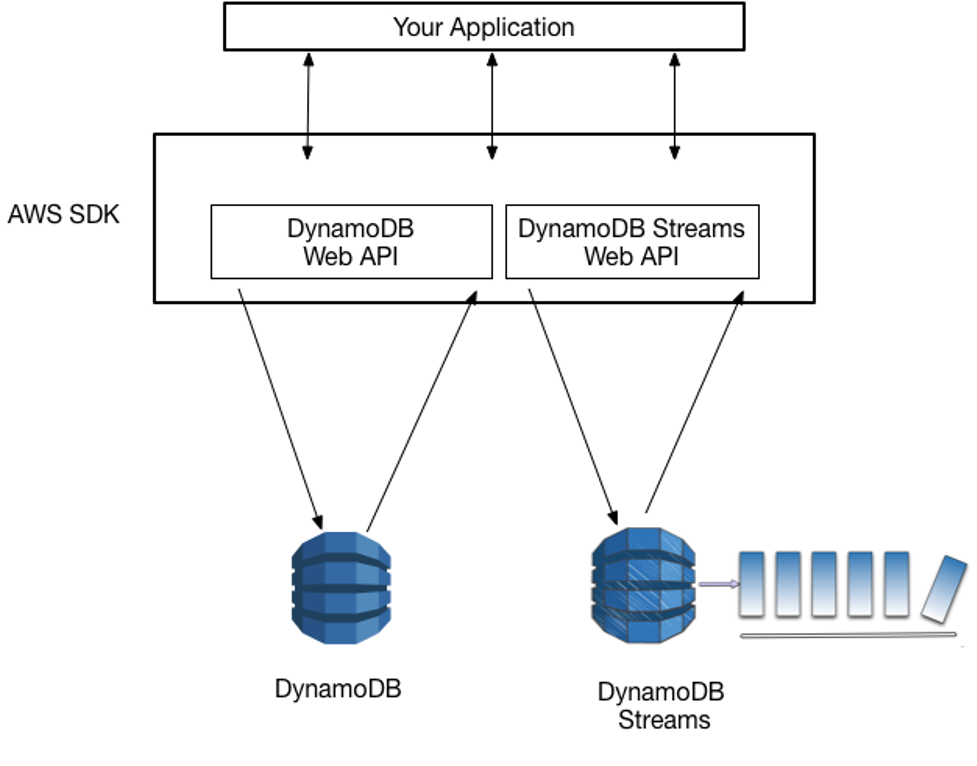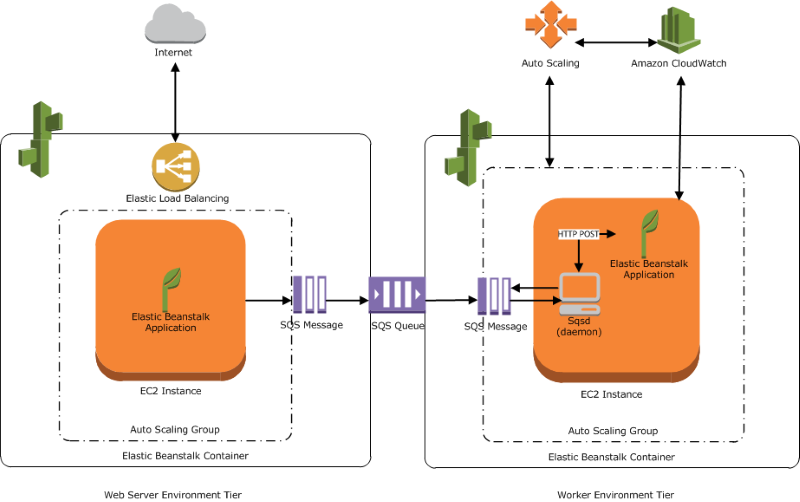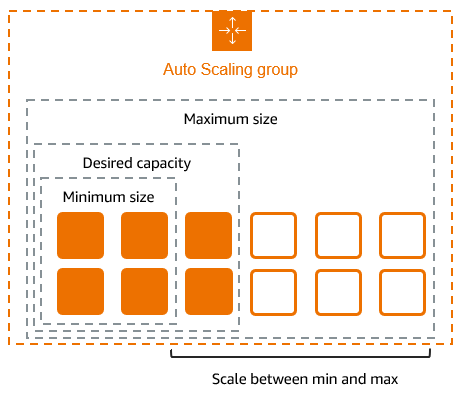Introduction
AWS has a wide variety of features of Compute Services that is designed for various workloads and use cases. Whether you are deploying the web application, running big data analysis, or deploying containerized applications, AWS has compute services that match your requirements. In this blog we will explore different AWS compute services and enable you to choose the right one based on your needs.
What are Compute Services
AWS Compute Services provides virtualized computing infrastructure, allowing users to access and use virtual machines, containers, and serverless functions on demand. It offers flexible, scalable, and cost efficient solutions.

Key AWS Compute Services
AWS Elastic Compute Cloud (EC2)
It is a web service that provides secure, resizable compute capacity in the cloud. It is designed to make web-scale computing easier for developers and also provides you with compute control of your computing resources. AWS reduces the time required to obtain and boot new server instances within minutes, allowing quickly scale the capacity both up and down whenever computing requirements changes.
- Features: Pay only for the compute time you use, with automatic scaling.
- Use Cases: Event-driven tasks, microservices, and real-time data processing.
AWS EC2 Auto Scaling
Amazon EC2 Auto Scaling helps you maintain the application availability and allows you to automatically add or remove EC2 instances according to the conditions defined. You can use the dynamic and predictive scaling features of Amazon EC2 Auto Scaling to add or remove EC2 Instances.

- Features: Automatically adjusts compute resources based on demand, ensures high availability, and optimizes costs.
- Use Cases: Scaling web applications, handling traffic spikes, maintaining uptime during failures, and cost-efficient resource management.
AWS Lambda
You may run the code using Amazon Lambda without having to provision or manage the servers. Without requiring any administrative work, Lambda allows you to run code for almost any application or backend service. You only need to upload your application code, and Lambda will take care of the scaling, availability, and execution infrastructure. The code can be directly called by web or mobile applications, or it can be set up to run in reaction to other AWS services.
- Features: Pay only for the compute time you use, with automatic scaling.
- Use Cases: Event-driven tasks, microservices, and real-time data processing.
AWS Elastic Container Service
Amazon ECS is a highly scalable, high performance container orchestration service that supports Docker containers and allows you to easily run and scale containerized applications on AWS. It eliminates the need for you to install and operate your own containerized applications.
- Features: Integration with AWS services, customizable container configurations.
- Use Cases: Running and managing containerized applications, especially in microservices architectures.
Amazon Kubernetes Service
AWS EKS makes it easy to deploy, manage and scale the containerized applications using Kubernetes ON AWS. EKS runs on the management infrastructure across the multiple AWS Availability Zones to eliminate a single failure.
- Features: Native Kubernetes compatibility, integration with AWS tools.
- Use Cases: Complex container orchestration, multi-cloud strategies.
AWS Fargate
AWS Fargate is a compute engine for Amazon ECS that allows you to run containers without having you to manage servers or clusters. With AWS Fargate, you no longer have to provision , configure and scale the clusters of VMs to run the containers. This removes the need to choose server types, decide when to scale your clusters, or optimize cluster packing. Fargate removes the need for you to interact with or think about servers or clusters.
- Features: Simplifies deployment, pay-per-task pricing.
- Use Cases: Running containerized applications without managing underlying infrastructure.
AWS Batch
AWS Batch enables developers, scientists, and engineers to reasonably and easily run large volumes of batch computing jobs on AWS with AWS Batch. AWS Batch automatically allocates the ideal number and kind of computing resources (e.g., CPU and memory optimized instances) to the volume and unique resource needs of the batch jobs that are submitted. Users do not need to install and maintain batch computing or cluster server software to run their jobs, allowing them to focus on the work that matters—analyzing results and solving problems.
- Features: Automatic scaling, cost-efficient resource allocation.
- Use Cases: Scientific simulations, image and video rendering, and big data analysis.
AWS Elastic Beanstalk
AWS Elastic Beanstalk service is built in Java, .NET, PHP, Node.js, Python, Ruby, Go, or Docker can easily be deployed and managed by AWS Elastic Beanstalk, which makes use of common applications like Apache, Nginx, Passenger, and IIS. Just upload your code and AWS Elastic Beanstalk takes care of everything from deployment, capacity provisioning, load balancing, auto scaling, and health monitoring as well.

- Features: Simplifies deployment and scaling of web applications and services, supporting multiple programming languages and infrastructure management.
- Use Cases: Deploying web apps, microservices, and APIs with minimal configuration and automated scaling.
AWS Lightsail
Amazon Lightsail is designed to be the easiest way to launch and manage a virtual private server with AWS. Lightsail plans include everything you need to jumpstart your project – a VM, SSD-based storage, data transfer, DNS management, and a static IP address – for a low, predictable price.
- Features: Easy-to-use interface, predictable pricing.
- Use Cases: Hosting websites, launching simple applications, or creating development environments.
AWS Outpost
AWS Outposts bring native AWS services, infrastructure, and operating models to virtually any data center, co-location space, or on-premises facility. You can use the same APIs, the same tools, the same hardware, and the same functionality across on-premises and the cloud to deliver a truly consistent hybrid experience.

- Features: Extends AWS infrastructure, services, and tools to on-premises environments for a consistent hybrid cloud experience.
- Use Cases: Running low-latency applications, meeting data residency requirements, and enabling hybrid cloud deployments.
Choosing the Right Compute Service
Selecting the best compute service depends on your specific use case and requirements:
- For traditional applications: Use Amazon EC2 for complete control of your instances.
- For serverless applications: Event driven workloads are preferred with AWS Lambda.
- For containerized applications: You may choose ECS, EKS, or Fargate based on your orchestration and infrastructure requirements.
- For batch processing workloads: Execute jobs efficiently with AWS Batch.
- For simple and low-maintenance workloads: Lightsail can be recommended for straightforward installations and set prices.
Why AWS Compute Services?
- They allow for additional continuous scaling based on demand, incorporating unparalleled uptime.
- They allow for cost savings and better resource utilization, charging solely based on services used, like with Spot Instances and Fargate.
- Services can be deployed globally and are accessible from any region, making them invaluable for AWS workloads.
- There is seamless cooperation with other AWS solutions, such as S3, RDS, and Cloudwatch, making ecosystem integration a significant benefit of AWS’s approach.
Conclusion
AWS compute services provide various solutions specific to varying workloads. Whether you are creating a basic application or an advanced system, AWS offers solutions tailored for your needs, and understanding these services is essential for leveraging AWS’s advantages.
Don’t skip the next blog, where we will walk you through the process of launching your first EC2 instance step by step. For more blogs centered around Cloud and DevOps, please keep visiting DevOps Horizon.



